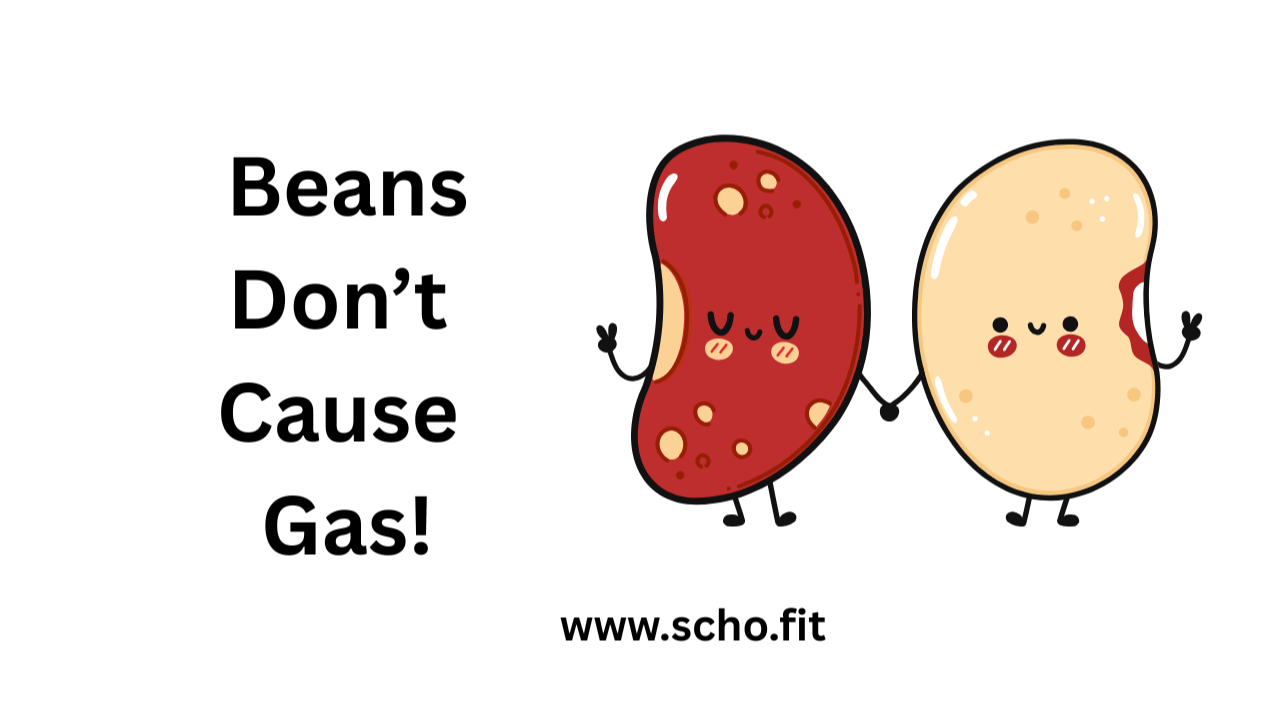
Beans Don't Cause Gas
Aug 15, 2025By: Marcy Schoenborn
Beans have an undeserved bad reputation. They don’t inherently “cause” gas in a healthy digestive system; the real issue is how your gut microbiome handles them.
Why beans get blamed for gas
Beans contain oligosaccharides (like raffinose and stachyose), which are complex carbohydrates. Humans lack the enzymes to break these down in the small intestine, so they pass to the large intestine where gut microbes ferment them.
In a balanced microbiome, this fermentation process produces short-chain fatty acids (SCFAs) — beneficial compounds that feed colon cells and reduce inflammation — along with small amounts of gas that usually pass unnoticed.
The real culprit: an imbalanced gut microbiome
If your gut microbiome is unhealthy or imbalanced (low diversity, high abundance of gas-producing bacteria, or low abundance of bacteria that utilize hydrogen), the fermentation process becomes skewed.
-
Low diversity means fewer bacteria that efficiently process oligosaccharides without excessive gas production .
-
Overgrowth of certain species (e.g., Clostridium or Enterobacter) may produce more hydrogen, methane, or sulfur gases .
-
Lack of methanogens or hydrogen-consuming bacteria means gas lingers instead of being converted into less noticeable byproducts .
This is why two people can eat the same serving of beans — one feels fine, the other gets bloated.
Improving tolerance
Research shows that gradually increasing bean intake can train the microbiome to handle them better . This works because beneficial fiber-fermenting bacteria like Bifidobacterium and Lactobacillus expand when consistently fed oligosaccharides, leading to less gas over time .
Key takeaway
Beans aren’t the problem — they’re actually gut-healthy prebiotics.
Gas and discomfort are more a sign that your gut microbes aren’t balanced or diverse enough to handle the fermentation process smoothly. A healthy microbiome turns beans into SCFAs and minimal gas; an unhealthy one turns them into bloating and discomfort.
References:
-
Deehan EC, Walter J. The fiber gap and the disappearing gut microbiome: implications for human nutrition. Trends Endocrinol Metab. 2016;27(5):239-242. doi:10.1016/j.tem.2016.03.001
-
Koh A, et al. From dietary fiber to host physiology: short-chain fatty acids as key bacterial metabolites. Cell. 2016;165(6):1332–1345. doi:10.1016/j.cell.2016.05.041
-
Carbonero F, et al. Microbial pathways in colonic sulfur metabolism and links with health and disease. Front Physiol. 2012;3:448. doi:10.3389/fphys.2012.00448
-
Winham DM, Hutchins AM. Perceptions of flatulence from bean consumption among adults in 3 feeding studies. Nutr J. 2011;10:128. doi:10.1186/1475-2891-10-128
-
Sonnenburg ED, Sonnenburg JL. Starving our microbial self: the deleterious consequences of a diet deficient in microbiota-accessible carbohydrates. Cell Metab. 2014;20(5):779–786. doi:10.1016/j.cmet.2014.07.003
Don't miss a beat!
New moves, motivation, and classes delivered to your inbox.
We hate SPAM. We will never sell your information, for any reason.
